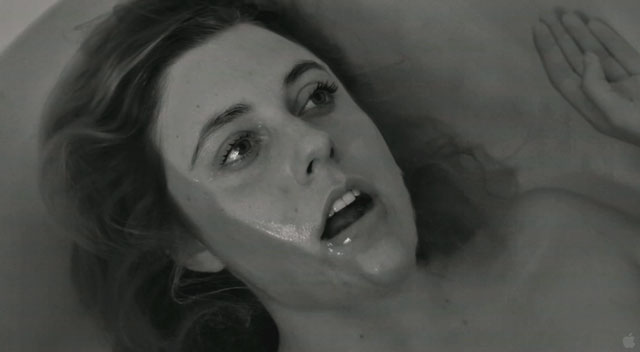Monday, June 24, 2013
FRANCES HA (2013, Noah Baumbach)
Noah Baumbach is best known for his quick and witty dialogue, where characters use inflated vocabularies but still sound natural (or at least fitting to the character). This is best scene in his films Kicking and Screaming, Squid and the Whale, Greenberg, and his screenplay collaborations with Wes Anderson (Life Aquatic and Fantastic Mr. Fox). Anderson and Baumbach are typically compared to one another due to their work together, but in reality, there is no reason to compare them. Sure, both are "quirky," but in totally different ways. Anderson paints technicolor pictures (literally with his images and figuratively by his story lines), while Baumbach has always carried a cynical edge to his work. Anderson can stray to darker topics from time to time but always comes back to pop songs and sunshine. Baumbach's stories typically have greater emotional depth and do not emphasize the superficial composition.
Baumbach's latest work, Frances Ha, is certainly a comedy, consistant with most of Baumbach's works, but is not afraid of looking into the void of a future that possibly awaits Frances, our 20-something New Yorker. The film follows Frances as she resists change in her life. Her best friend becomes more and more committed to the type of guy they used to make fun of for his distressed baseball caps, her low-paying job at a dance studio is going nowhere, and she can't sem to find a solid place to live. The film's major external motion is Frances moving from apartment to apartment, finding new roommates and living situations, trying to grow up and find stability.
However, Frances doesn't really have any intention of growing up, it seems. In the film's opening, she leaves her boyfriend because she does not want to leave her best friend Sophie alone in an apartment, and never contacts her ex again, even though Sophie soon moves out. For her career, she turns down a valuable opportunity to work as an assistant to the dance school's director out of an odd mix of pride and refusing to change career directions. However, right after rejecting that job, she accepts a position as a college tour guide at her alma mater, showing that she was ready to accept "failure" to herself, but not publicly yet.
Greta Gerwig is phenomenal as the wandering 20-something. Although self-importantly quirky characters are hopefully a thing of the past, since they typically have zero depth besides doing something silly and inappropriate (think Zooey Deschanel in many of her roles, Natalie Portman in Garden State, and even Gerwig herself in last year's disastrous Damsels in Distress), Frances has obvious reasons working behind her actions. When she dances while running in the street, we know why.
Perhaps the most interesting aspect of Frances Ha is the heavy stylistic similarities between it and French New Wave films. Baumbach seems to have drawn from a mix of Goddard and Truffaut in particular. Although Truffaut's wanderlust in regards to story and structure is obvious throughout the film, I felt the presence of Goddard heavily during a later scene in the film, in which a drunk Frances delivers a lengthy but well-crafted monologue about the nature of love, and how one hopes to find it. The speech's placement just reeked of Goddard, and truly allowed all the pieces of the film to fall into place. France's idealistic view on love that she presents tampers with not only her romances but all other aspects of life- friendships, careers, and dreams.
Frances Ha is certainly a unique film, filled with alternating fear and hope for the future. Baumbach, now in his forties, gracefully enters the life of someone much younger than him and without any clear prospects, yet as an outsider, gently diagnoses her and allows the audience to see her flaws. However, he does not judge, and allows her to learn, succeed, and ultimately grow into her own person and create her own opportunities and success. Frances Ha is a brillant tribute to fading youth, New Wave, and the fear of an unknown future
Labels:
Baumbach,
Gerwig,
new movie,
review,
Wes Anderson
Subscribe to:
Post Comments (Atom)

No comments:
Post a Comment